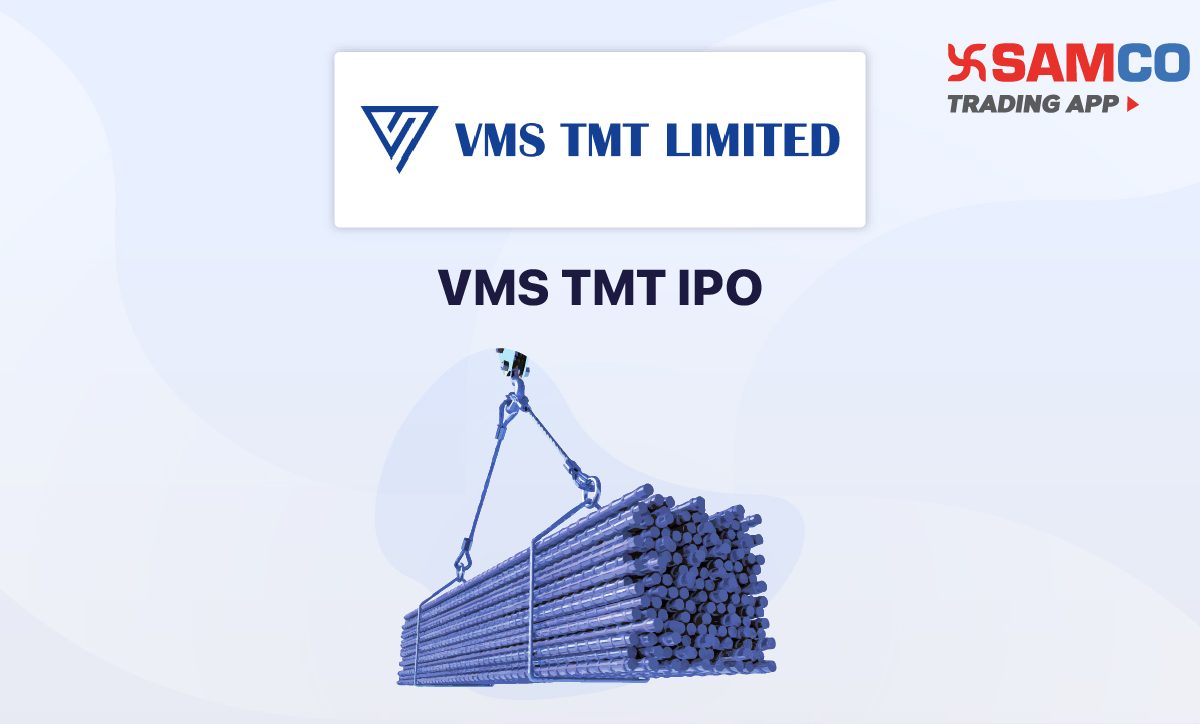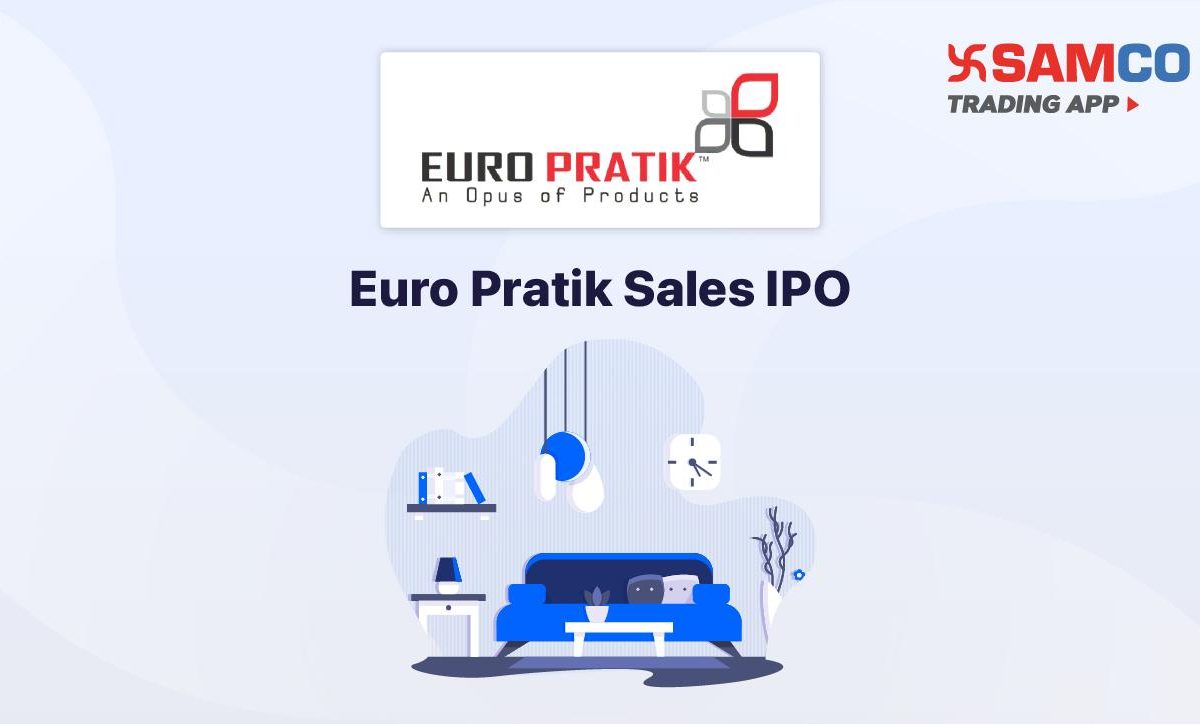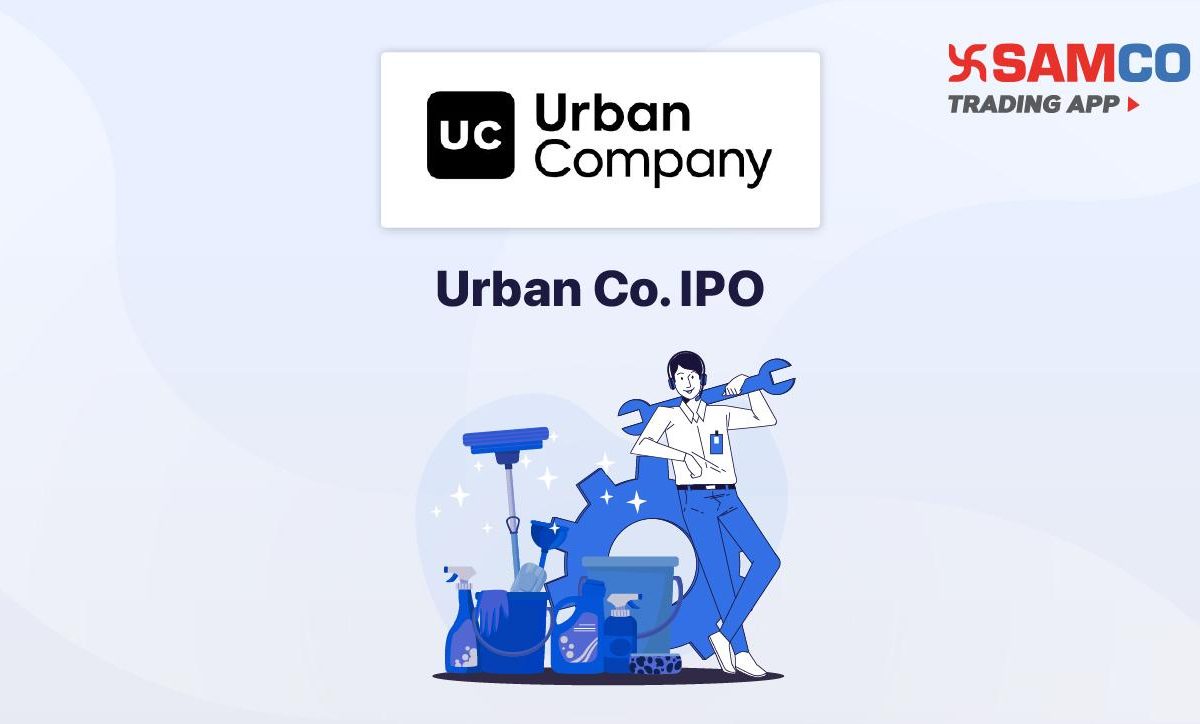 IPO
IPO
VMS TMT IPO: Check IPO Date, Lot Size, Price & Details
VMS TMT Limited is a Gujarat-based manufacturer of Thermo Mechanically Treated (TMT) bars, catering primarily...
16 September 2025
There is no open IPO in current date. Please wait for Upcoming IPO.
An Initial Public Offering (IPO) refers to the process by which a private company offers its shares to the public for the first time. This transition from a privately owned business to a publicly traded company enables the firm to raise capital by selling ownership stakes to investors. IPOs are fundamental milestones for companies and play a critical role in the broader capital market ecosystem, providing new opportunities both for businesses and investors. The proceeds from an IPO can be used to fund expansion, pay off debt, or pursue other strategic business goals.
The process of launching an IPO involves several vital steps, starting with the company’s decision to “go public.” Once a company decides to proceed, it engages investment banks as underwriters to assist with regulatory filings, determining the offer price, and marketing the issue to potential investors. The IPO process in India is regulated by the Securities and Exchange Board of India (SEBI), which sets rules to ensure transparency, investor protection, and fair access.
The company then files a Draft Red Herring Prospectus (DRHP) with SEBI, providing detailed information about its financials, operations, and future plans. After regulatory review and necessary approvals, the IPO is announced and the subscription window opens for investors to place their bids.
A company’s path from being privately owned to listing on the stock exchange is a rigorous and highly regulated journey:
IPOs can present lucrative opportunities for investors, especially if the company demonstrates strong growth potential and solid fundamentals. Early investors may benefit from significant capital appreciation if the stock performs well post-listing. The visibility and liquidity of publicly traded shares can also be appealing, allowing investors to enter or exit their positions relatively easily.
Despite the allure of high returns, IPO investments come with inherent risks. Share prices often witness significant volatility, especially in the early days of listing. Factors influencing price movements can include overall market sentiment, demand-supply imbalances, company performance, and macroeconomic conditions. It’s essential for investors to be prepared for short-term price swings and potential losses.
Prudent investors must diligently study the prospectus and evaluate the company’s financial health, competitive landscape, business model, management strength, and long-term growth prospects. Assessing the price-to-earnings ratio, revenue trends, profitability, and sectoral outlook are crucial steps. Avoid getting swayed by hype or over-subscription numbers alone—strong fundamentals should guide your investment decisions.
Investing in an IPO requires careful preparation. Here are key actions to take before participating:
To apply for IPOs as a retail investor in India, you must satisfy certain eligibility criteria:
Retail investors can apply for IPO shares up to a value of ₹2 lakh in a single issue. Applications above this threshold fall under the High Net Worth Individual (HNI) or Non-Institutional Investor (NII) category.
The IPO application process typically unfolds as follows: 1. Choose the IPO: Monitor upcoming issues via stock exchanges, financial news, or broker platforms. 2. Apply Online or Offline: Submit bids either through net banking (ASBA-enabled) or via brokerage platforms. 3. Select Bid Price or Cut-off: You can either specify a price within the given band or choose the ‘cut-off’ option for the highest possible probability of allotment. 4. Specify Lot Size: IPO applications must be made in multiples of the defined lot size. 5. Submit Application: Complete and submit your application before the issue closes.
After the bidding period ends, allotment is finalized based on overalloversubscription and prescribed rules, and shares are credited or refunds initiated.
The IPO calendar is structured around a sequence of key dates:
Timely awareness of these milestones is critical as missing the subscription window or neglecting to check allotment status may result in missed investment opportunities or confusion regarding refund credits. Over- or under-subscription, market trends, and the segment in which the IPO is offered (mainline or SME) can affect the timeline by a day or two. This makes it crucial to monitor official exchanges and registrar websites for real-time updates.
Once the IPO allotment process is complete, investors are naturally eager to find out if they have been allotted shares. The following details are typically required for tracking allotment:
To check your IPO allotment status:
You may also receive SMS or email notifications from your broker or bank regarding share credit or refunds.
Understanding IPOs, from their significance in capital markets to the nitty-gritty of applying and checking allotment status, is vital for retail investors eyeing India’s dynamic stock market. With careful preparation, due diligence, and timely monitoring of key events and dates, IPO investing can be a rewarding component of your financial strategy.
IPO allotment status refers to the outcome of share allocation after a company's Initial Public Offering (IPO) closes for subscription. This status determines if investors have received IPO shares from the Company IPO. When investors apply for shares during an Initial Public Offering, the company, through its registrar, is responsible for distributing the available shares fairly among all applicants. The allotment status indicates whether an investor has received the shares they applied for, and the quantity allotted to them. Shares can be fully allotted, partly allotted, or sometimes not allotted at all, depending on demand and subscription levels. IPO subscribed investors typically eagerly await their allocation.
Understanding your IPO allotment status is essential because it determines whether you will receive shares at the issue price, affecting your opportunity to participate in potential gains or losses when the stock lists on the stock exchange. If not allotted, your application funds are refunded.
Investors can check their IPO allotment status through several trusted channels. The process for checking IPO allotment status is streamlined to ensure transparency and accurate information.
It's crucial to use official and secure sources for checking your IPO allotment to avoid misinformation and data security risks. Always prioritize using legitimate channels for investment information regarding IPO shares.
The IPO allotment process is a mechanism through which shares are distributed to investors who have applied during a public company IPO. Given the fixed number of shares and varying investor demand, not all applicants receive full allotment, especially in oversubscribed offerings. IPO subscription results in various levels of shares being received or not. This process ensures fair and transparent allocation, in accordance with guidelines set by market regulators like SEBI (Securities and Exchange Board of India). SEBI regulations play a critical role in providing oversight.
Allotment plays a pivotal role for investors because it dictates participation in the post-listing phase of a stock. The public's perception of the allotment process can lead to increased trading activity. For companies, a well-managed allotment boosts credibility and fosters investor trust. A company's successful IPO can enhance its corporate reputation.
The registrar is a SEBI-registered entity appointed to oversee the IPO process, focusing on collection, reconciliation of applications, allotment, and managing refunds. They also ensure adherence to submission terms and regulations. Their duties include confirming allocation details and ensuring investor data integrity.
A competent registrar enhances the efficiency and reliability of the overall IPO experience, making the company IPO a positive financial undertaking.
The IPO subscription status represents the total number of shares applied for, relative to the number of shares offered in the IPO. It influences demand for the company in the market. It indicates the demand for the public issue among various investor categories and helps determine the company's interest levels. Understanding these categories gives the public a clearer picture of participation in the market.
This status is usually expressed as a ratio, such as 5x subscribed, providing insights into how many times the offering was oversubscribed and indicating the level of interest in the Company's Initial Public Offering.
Real-time updates on IPO subscription status are available during the subscription window, providing key insights into trading interests and market conditions.
Being proactive about real-time tracking allows investors to assess competitive positioning and potential oversubscription in their category. Online access to reliable data facilitates informed investment choices.
The IPO process takes a private company public, allowing retail and institutional investors to purchase shares for the first time. The transition enhances business visibility.
Regardless of allotment outcomes, maintain investment discipline and avoid impulsive decisions driven by market euphoria. Opting for prudence over hype secures financial stability.
Knowledge of IPO allotment, subscription status, and the overall IPO process greatly enhances your ability to make informed investment decisions. Following concise steps helps in achieving steady growth.
By staying informed and adopting best practices, investors can maximize their potential for successful participation in initial public offerings, especially within the trading sector. By staying informed and adopting best practices, investors can maximize their potential for successful participation in initial public offerings.
 IPO
IPO
VMS TMT Limited is a Gujarat-based manufacturer of Thermo Mechanically Treated (TMT) bars, catering primarily...
16 September 2025
 IPO
IPO
Euro Pratik Sales Limited is a design-focused trading company engaged in creative design and…
16 September 2025
 IPO
IPO
Dev Accelerator Limited (“DevX”) is a provider of flexible workspace solutions, operating…
10 September 2025
 IPO
IPO
Shringar House of Mangalsutra Limited (“SHOML”) is engaged in the design, manufacturing…
6 September 2025
 IPO
IPO
Urban Company (“the Company”) is a leading tech-driven, full-stack online marketplace…
6 September 2025
 IPO
IPO
Amanta Healthcare Limited, incorporated in 1994, is a pharmaceutical company engaged in…
28 August 2025
 IPO
IPO
The company is one of the fast-growing Indian Engineering, Procurement and Construction (EPC)…
25 August 2025
 IPO
IPO
Incorporated in 2013, Anlon Healthcare Limited is a pharmaceutical chemical manufacturer…
22 August 2025
Every IPO for a company defines a “lot size,” which is the minimum number of shares you need. Public investments in Initial Public Offerings (IPOs) require careful assessment of the lot size to determine the minimum share price entry. The minimum IPO investment amount is calculated based on lot size × issue price per share to ensure transparency and fairness in the equity process. For example, if the lot size is 50 shares and the issue price is ₹200, you would need ₹10,000 to apply for an IPO. SEBI mandates this IPO lot size structure to ensure public Initial Public Offerings (IPOs) remain accessible for retail investors in India.
No. A Demat account for public IPO is compulsory under SEBI regulations as IPO shares are issued only in electronic form traversed through registered entities. Without a Demat account, you cannot receive public IPO allotment. Opening a Demat account with Samco ensures you are fully equipped to apply for Initial Public Offerings (IPOs) seamlessly and track allotment status in real time. The process is streamlined and secure, with all necessary funds managed through your bank account.
This modern way simplifies the application process and increases accessibility for all investors. The most convenient ways to apply for upcoming IPOs online are:
The IPO cut-off price is the final offering price determined after the book-building process. For retail investors, applying at the cut-off price is strongly recommended because it ensures your IPO application remains valid regardless of the final price fixed by the company and underwriters. This increases your chances of a successful IPO allotment.
In cases where public IPO applications exceed the number of available shares, allotment is done according to SEBI’s IPO oversubscription rules. For retail investors, allotment is usually finalized by a lottery system to ensure fairness. Not every investor is guaranteed IPO allotment in oversubscribed IPOs. Check IPO allotment status promptly to manage your expectations and funds effectively, leveraging tools provided by your registrar. Check IPO allotment status promptly to manage your expectations and funds effectively. Utilize the services of your bank or online platform for a direct check on your IPO allotment status. Check the registrar website for additional details on your IPO allotment status. Ensure you're updated on any possible changes.
You can check your Initial Public Offering (IPO) allotment status through online services:
IPO shares are generally credited to your Demat account one to two working days before the IPO listing date. If you don’t see shares credited by then, it’s best to check with your broker or the IPO registrar. Platforms like Samco provide services that auto-update your securities holdings once credited.
No. SEBI permits only one retail IPO application per PAN. Multiple IPO applications under the same PAN may get rejected. However, you can apply for public IPOs through family members’ Demat accounts linked to different PANs to increase the chances of allotment.
No, IPO allotment is not guaranteed. It is primarily influenced by the business environment and investor interest. It depends on factors such as public IPO oversubscription levels, investor category (retail, HNI, QIB), and SEBI allocation rules. Even if you apply at the cut-off price, IPO allotment ultimately depends on demand versus supply.
If you don’t receive an IPO allotment, the blocked money is automatically unblocked in your bank account within a few working days. This safety net allows you to reclaim your capital without additional steps. In UPI-based IPO applications, you can often see the IPO refund released in real time. No further action is needed.
This distinction offers a greater investment opportunity for NRIs in the public offering. Yes. NRIs can apply for public IPOs in India using NRE or NRO accounts linked with a Demat account. However, NRI IPO applications are subject to RBI and FEMA regulations.
IPO listing gains are profits earned when the IPO share lists at a higher price than the issue price. However, public IPO listing gains are not guaranteed and depend on market sentiment and demand. It’s essential to assess the IPO price and its alignment with company growth and market conditions. While some Initial Public Offerings (IPO) listings provide strong gains and long-term returns, others may underperform. This requires careful assessment of trading prospects. While some public IPOs provide strong listing gains and long-term returns, others may list at a discount or underperform.
Investors should consider IPO price, market trends, business strategy, and value proposition of the upcoming IPO. Not necessarily. While some IPOs deliver strong listing gains and long-term returns, others may list at a discount or underperform. Evaluating public company growth prospects and offering details, including IPO price, is crucial for a successful equity investment. Investors should carefully evaluate IPO company fundamentals, corporate sector outlook, and valuations before applying. Samco’s IPO research services help filter IPOs worth considering based on corporate analysis.
If you already have a trading and Demat account, no additional IPO documents are required. Your PAN, Aadhaar, and bank account (linked with UPI or ASBA applications) are sufficient. The IPO application process is 100% online, streamlined, and paperless for efficiency.
Once IPO shares are credited to your Demat account and listed on NSE or BSE, you can sell them during trading hours on the stock exchange. Once IPO shares are credited to your Demat account and listed on NSE or BSE, you can sell them during market hours. Selling these shares in the stock market allows you trading flexibility to realize potential profits immediately. Retail investors face no IPO lock-in period unless specifically stated in the prospectus.
If your funds weren’t blocked or you missed approving the UPI mandate, your IPO application may be invalid. Always check your bank account or UPI app for confirmation of blocked funds. If no confirmation appears, check your funds or contact your broker or bank immediately.
You can track upcoming IPOs in India via:
SME IPOs are initiated by Small and Medium Enterprises that list on the NSE Emerge or BSE SME platforms as part of their launch into the public market. This opens up new avenues. SME IPOs are IPOs launched by Small and Medium Enterprises that list on NSE Emerge or BSE SME platforms. They generally have smaller IPO lot sizes but may carry higher risks due to lower liquidity and company size.
IPOs carry business risks such as price volatility, overvaluation, limited financial history, and uncertainty of IPO allotment. Not every IPO is profitable. Public offerings may vary in profitability based on overall market conditions and specific company fundamentals. Samco advises public investors to diversify and invest only within their risk capacity.
You can modify or cancel your IPO application during the scheduled subscription period. You can modify or cancel an IPO application during the subscription period. After the window closes, no changes can be made. Being aware of trading periods helps ensure timely action is taken. Always review your IPO application details carefully before submission.
In oversubscribed public IPOs, allotment follows SEBI rules. Visit the registrar website to stay updated on the IPO allotment status. At least one lot is allotted to each successful retail investor wherever possible. In HNI and QIB categories, IPO allotment is done on a proportionate basis.
Yes, IPOs are beginner-friendly due to the simple online application process. However, beginners should not assume guaranteed listing gains. Check the IPO allotment status, studying fundamentals, and using Samco’s IPO research reports helps beginners make informed public investment decisions.
The IPO registrar (e.g., Link Intime, KFintech) is a SEBI-registered agency responsible for processing IPO applications, publishing IPO allotment status, crediting shares to Demat accounts, and handling IPO refunds. Registrars ensure transparency in IPO allotments.
An IPO may list above or below its issue price if market sentiment changes or if the company valuation fluctuates. The IPO listing price reflects both company fundamentals and investor demand. Public market fluctuations and company fundamentals define the value perception.